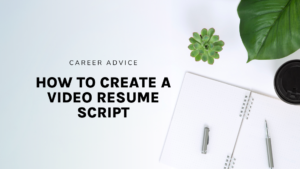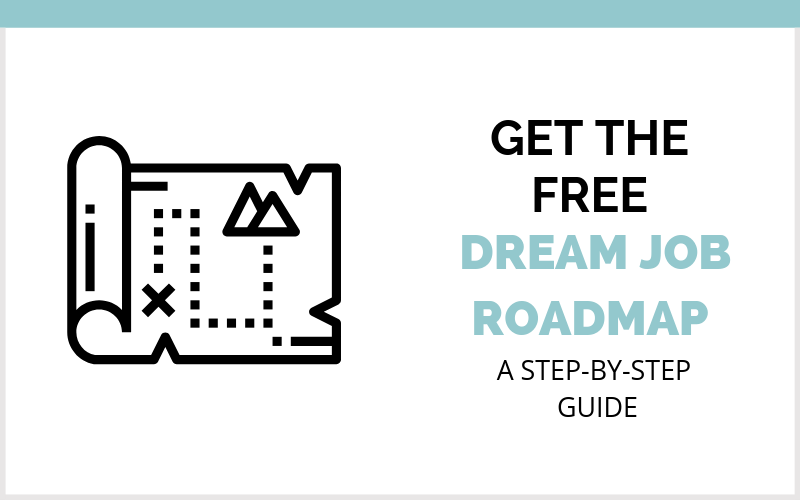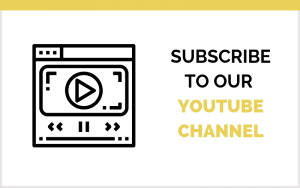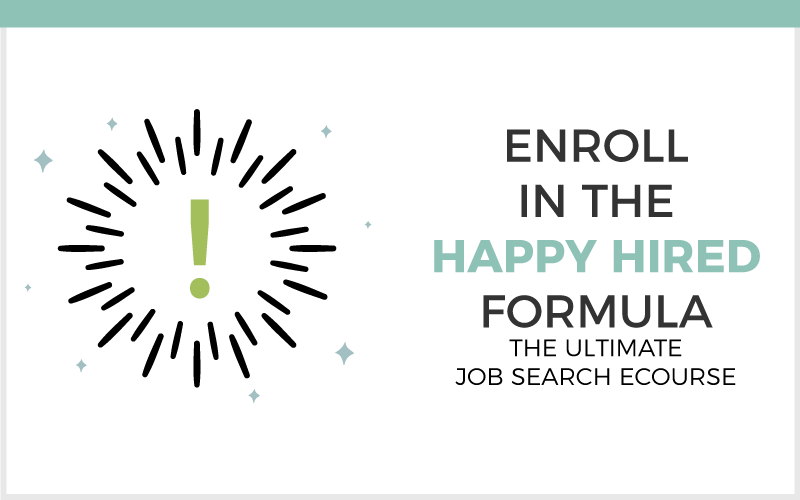Let’s discuss all things, employment gaps. After coaching thousands of job seekers, these are really scary for us! Whether we’re afraid to put it on our resume, because we’re worried about the judgment that an employer’s going to make about why we were voluntarily or involuntarily let go, or we’re worried about it during the interview stage when they start to probe about why did you leave that position. The good news is that employment gaps aren’t as bad as you think they are!
How to Address Employment Gaps on Your Resume and In Interviews
What Do Hiring Managers Really Think About Employment Gaps?
I’ll explain more of that today, but I just want to share that I myself have employment gaps in my background. And again, it’s not something that I shine a light on and put emphasis and focus on, but it is there and I have good reasons and explanations for each one of them. And so, the real point of our topic today is helping you understand from a recruiter and the hiring manager’s perspective on how you can address employment gaps so that it doesn’t send red flags, but instead utilizing the situation to your advantage.
Tip#1: A Pattern of Employment Gaps = RED FLAG to Hiring Managers + Recruiters!
Employment gaps are not really that big of a deal unless you have a lot of them, meaning that there’s a pattern of you joining a company. Let’s say you join a company for a year or two, and then you have a break and then you have another one from one to two years, and then you have another break. It’s this continuous cycle or pattern when employers generally start questioning what this pattern is about – and you better have a good reason and explanation for that.
If there is a pattern and it’s really evident, then that’s when I would recommend you to take off the month and just leave the years in your resume. For recruiters, it’s giving out a red flag like, “what is this person hiding?”. In the interview, you’ll have a chance to explain what’s that all about, but at least on the resume, it will be good for you to kind of get through resume screening and be interviewed to be able to have the opportunity to explain. Now, if your employment gaps are only a minority then you can absolutely include the month and the year for your employment history.
Tip#2: Recruiters Understand that Some Employment Gaps are Unavoidable
Recruiters understand that job searching takes time. We understand that life happens and not everybody has this long succession of employment and that’s okay. Generally speaking, if it’s about you getting laid off, or your previous company had a merger and acquisition that rendered your position redundant, or you moved to another state, or you decided to go back to school or you took some time off for personal sabbatical to take care of somebody in your family, et cetera, whatever that personal reason may be, it’s okay to have an “end date” and then have some time in between before you started a new job.
You might also want to put in parentheses your reason for leaving, unless it was involuntary, meaning that you had performance issues such as being fired for misconduct and so forth. But if your reason for leaving was, again, any of those voluntary reasons, including getting a severance package or being laid off or being redundant in the workforce, then you can go ahead and include that as a reason. And it’s not going to raise a red flag.
Tip#3: When Asked About Employment Gaps, A POSITIVE ATTITUDE is Key
Now let’s talk about the interview questions. When asked, why did you leave these positions and what were you doing during this time? What we’re really looking for here is a positive response. So whether or not you were taking personal time off, did that end on a positive note? What were you doing during this time? Did that allow you to further your skills, experience, and your knowledge?
So for instance, if your reason for voluntarily resigning was because you needed to take care of an elder family member, state that and let them know that this matter has since been resolved. Explain what you’ve been doing to get your foot back into the workforce, and you are very much ready for this next chapter.
Tip#4: Aim to Showcase How You’ve Been Adding Skills and Strengths to Your Portfolio
If you were let go because of redundancy in the workforce or just the company was dissolving, you can absolutely share what you’ve been working on in the interim. You could share when this happened, and it took some time to assess what you’re looking for in your next chapter. Again, you want to align yourself to the position and the company that you’re interviewing for at the moment.
Sprinkle in some of the skills that you’ve been learning or brushing upon, or the courses that you’ve been taking or the books and the podcasts you’ve been reading to get yourself really familiar with any of the latest updates and the regulations, the industry knowledge, the landscape, as it has changed since your last employment,
Employment Gaps Aren’t A Big Deal Unless You Make Them A Big Deal
The most important thing is to highlight and focus on the positives. And if for any reason you were let go involuntarily because it was performance-related, or misconduct, et cetera; you just really want to take ownership of that situation and you might want to state it without going into all the details. Just mention a high-level overview of what occurred, what you learned from it. and what you’re looking for next. At the end of the day, employers want to know how you have positively shown up for yourself, and what positive attitude you can bring to the table. How you’ve demonstrated, maximized, and utilized that time period wisely to continue forth to where you are today and where you want to be in the future.
Don’t Dwell on the Past – Focus on the Future!
I want to end this by sharing that I’ve worked with job seekers in the past, who have had one to two-year unemployment gaps, including the current one, and yet they are able to land their dream positions. A lot of them actually jumped into senior roles that were higher than the position that they previously left and even doubled their salaries.
Don’t worry about something that’s happened in the past and just think like this is my past or present circumstance. Whatever your goals are in the future, you can work towards that, and you can obtain that regardless of what is in your employment history or written on your resume. Currently, this is really the power and the beauty of being able to reinvent yourself and have your story ready, have your personal branding ready, and really being able to connect and align yourself to that future position.
By the way, if you are interested in learning more about jobs or strategies and just getting comprehensive holistic support, check out the programs down below to guide you through the entire process and take out the guesswork, because I truly believe that everybody has the potential to land their dream jobs. We just might need a reframe in our mindsets and we might need a new strategy and approach. I can’t wait for you to continue cultivating your life and your career!












